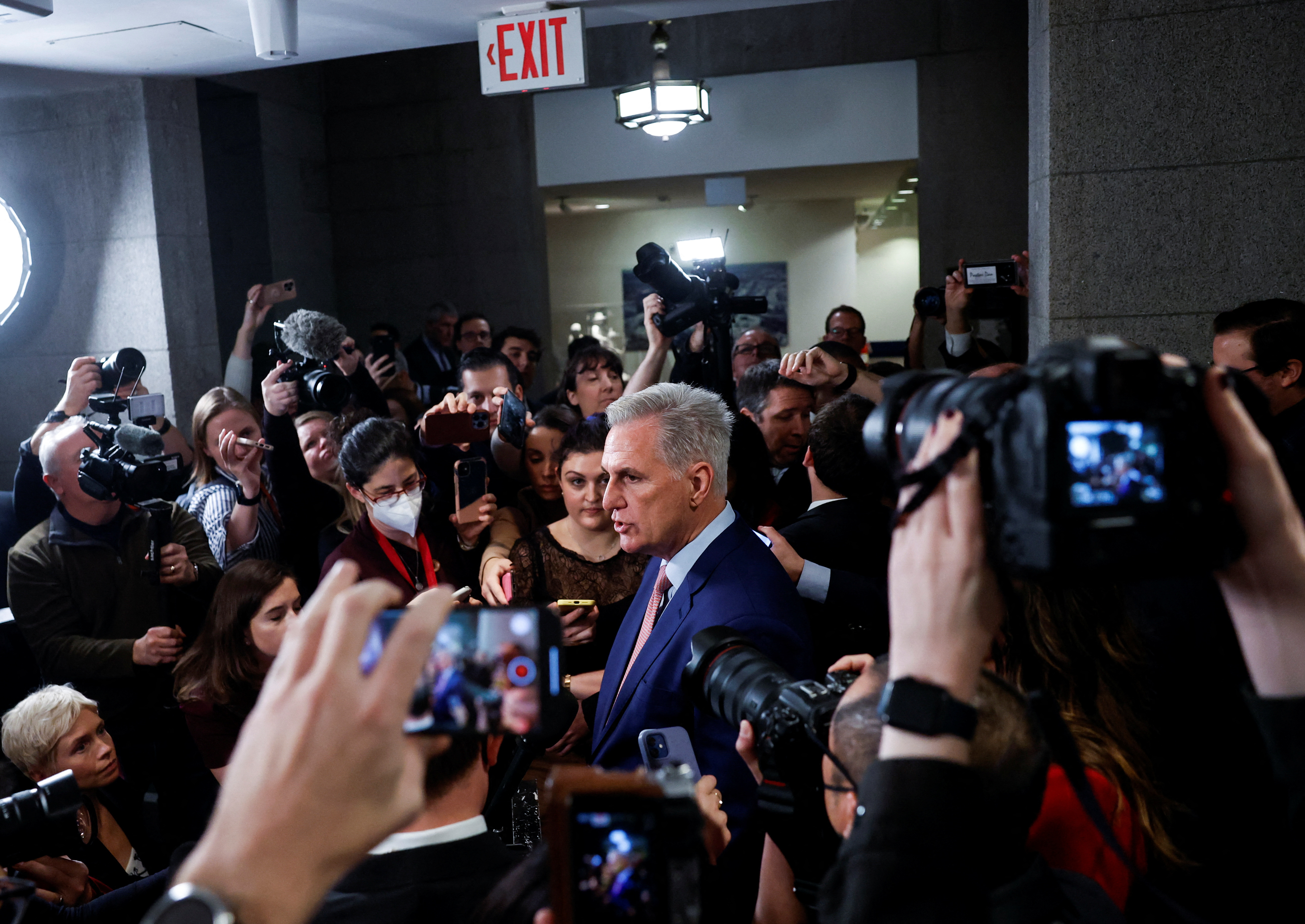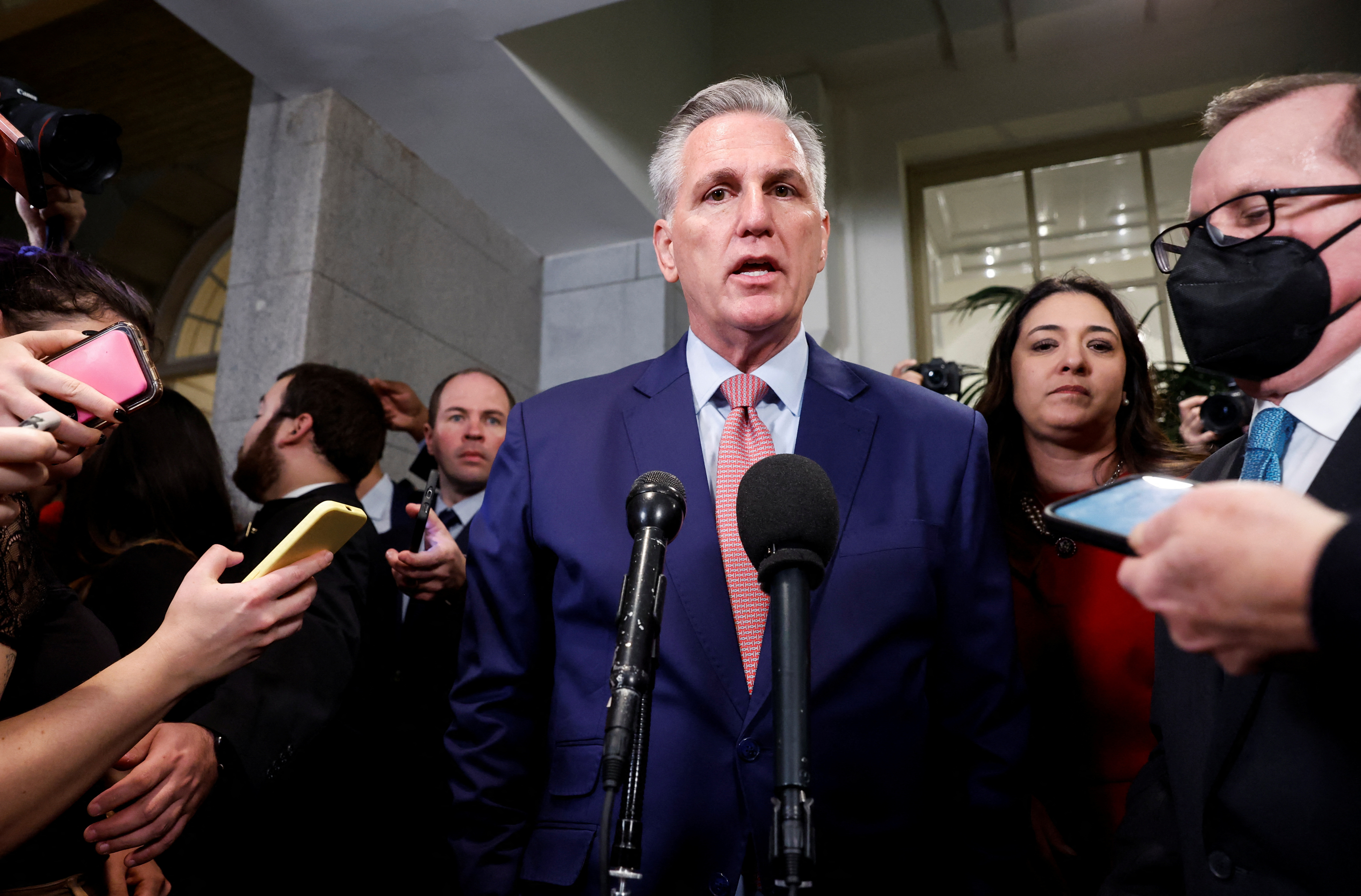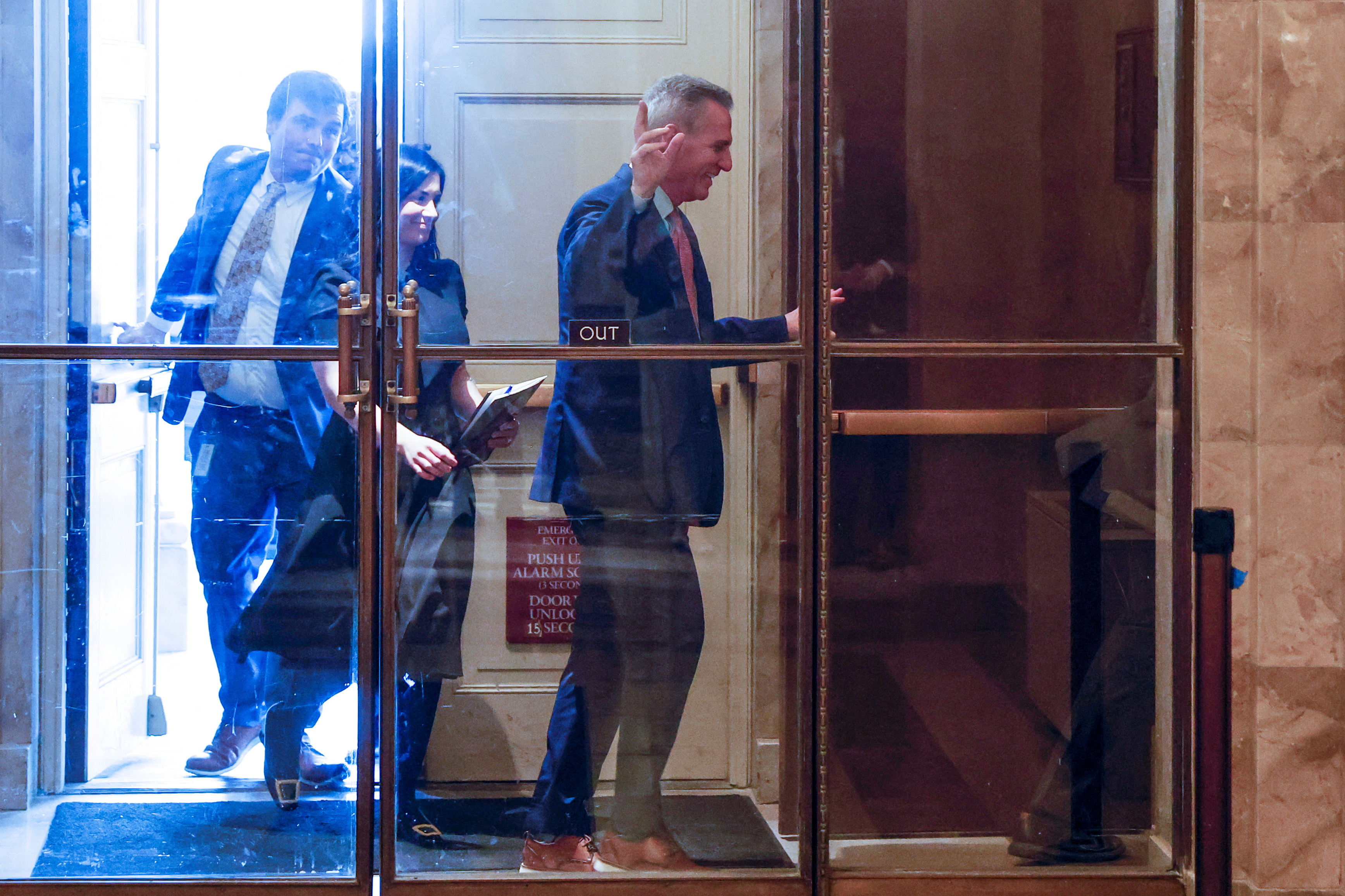2023-01-03T18:14:24Z
A handful of hardline U.S. Republicans on Tuesday (January 3) vowed to block Kevin McCarthy’s bid to become the speaker of the House of Representatives, signaling a brutal battle inside the party on its first day holding the majority. After a morning party meeting, McCarthy told reporters, “We may have a battle on the floor, but the battle is for the conference and the country.”
Republican Kevin McCarthy was in danger of losing his the first vote for speaker of the U.S. House of Representatives on Tuesday, as at least seven hard-line conservatives in his own party voted against him, leaving their new majority in turmoil.
Voting continued on the House floor. But in what could prove to be a brutal fight between hardliners and the majority of House Republicans, McCarthy looked set to fall short of the 218 votes needed for the speakership. It was the first time in a century that the House had not elected a speaker on the first vote.
McCarthy was vying for the speakership against conservative Republican rival, Representative Andy Biggs, and House Democratic leader Hakeem Jeffries.
Republicans won a narrow 222-212 majority in November’s midterm election, meaning that McCarthy — or any candidate for speaker — will need to unify a fractious caucus to win the gavel.
Before the vote, McCarthy tried to persuade the holdouts in at closed-door party meeting, vowing to stay in the race until he gets the necessary votes, but many participants emerged from the gathering undaunted.
A protracted speaker election could undermine House Republican hopes of moving forward quickly on legislative priorities involving the economy, U.S. energy independence and border security.
Tuesday’s vote marked the first time in 100 years that a nominee has not succeeded to the House speakership on the first ballot. The record number of voting rounds to elect a House speaker is 133 over a two-month period in the 1850s.
Related Galleries:

U.S. House Republican leader Kevin McCarthy (R-CA) is surrounded by reporters after a House Republican caucus meeting on the first day of the 118th Congress at the U.S. Capitol in Washington, U.S., January 3, 2023. REUTERS/Evelyn Hockstein

U.S. House Republican leader Kevin McCarthy (R-CA) talks with reporters after a House Republican caucus meeting on the first day of the 118th Congress at the U.S. Capitol in Washington, U.S., January 3, 2023. REUTERS/Jonathan Ernst

U.S. Rep. Andy Biggs (R-AZ) talks on his mobile phone in a hallway outside a Republican caucus meeting on the first day of the new Congress at the U.S. Capitol in Washington, U.S., January 3, 2023. REUTERS/Jonathan Ernst

U.S. House Republican Whip Rep. Steve Scalise (R-LA) makes his way through the U.S. Capitol to a Republican caucus meeting on the first day of the new Congress in Washington, U.S., January 3, 2023. REUTERS/Jonathan Ernst

The dome of the U.S. Capitol building is reflected in a car window, on the morning of the first day of the 118th Congress in Washington, DC, U.S., January 3, 2023. REUTERS/Jon Cherry

U.S. House Republican leader Kevin McCarthy (R-CA) faces reporters as he arrives on the first day of the new Congress at the U.S. Capitol in Washington, U.S., January 3, 2023. REUTERS/Jonathan Ernst

House Republican leader Kevin McCarthy (R-CA) waves as he arrives on the first day of the new Congress at the U.S. Capitol in Washington, U.S., January 3, 2023. REUTERS/Jonathan Ernst

House Republican leader Kevin McCarthy speaks to reporters following a meeting with U.S. President Joe Biden and other congressional leaders at the White House in Washington, U.S., November 29, 2022. REUTERS/Kevin Lamarque/File Photo









